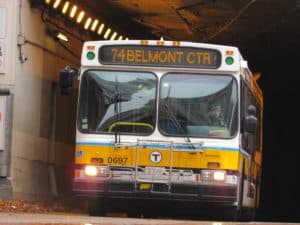The Senate turned back efforts Thursday to remove new municipal taxing powers from a transportation bond bill, rejecting an amendment from Democrat Sen. Diana DiZoglio that would have scrapped plans for binding regional ballot initiatives.
DiZoglio slammed her party’s leadership for including the proposal that would allow cities and towns to increase local taxes and use the funding for transportation projects, echoing criticism from several business groups that the measure would inflict further economic harm on communities still facing a precarious outlook due to the COVID-19 pandemic.
“We wait to take up small business relief,” DiZoglio said. “We punt, we make excuses, and they’re crying out to us, saying, ‘Our doors are closing, we might not survive this.’ Your community is shutting down right now as we speak, and instead of passing things that are going to help us to survive, you think it’s a good opportunity to contribute to the opportunity to raise taxes on us in a regressive manner that could lead to our shutdown forever, Madam President.”
The Methuen Democrat’s amendment would have eliminated the section – one of the few revenue-related components of a bill dealing almost entirely with borrowing and capital spending – but the Senate voted 31-8 to preserve the regional ballot initiative language in the bill.
The four Republican senators voted in favor of the amendment, as did DiZoglio and Democratic Sens. Anne Gobi of Spencer, Walt Timilty of Milton and John Velis of Westfield. The initiative is part of a bill that was approved 36-4.
The measure included in the $16.9 billion bond bill (S.2813) would not mandate any tax increases, but it would allow an individual community or a group of municipalities working together to offer local ballot questions that, if approved, would raise the sales, property, room occupancy or vehicle excise tax and use the revenue for transportation. While regional ballot initiatives may not be able to raise as much money for transit as statewide initiatives, advocates say they could offer another funding stream for transportation upgrades outside of the MBTA’s service area.
Sen. Eric Lesser, a Longmeadow Democrat, said during debate that many other states have similar policies available and that the Senate had previously approved regional ballot initiatives without a matching vote in the House.
“This is about regional empowerment,” Lesser said. “This is about acknowledging that a lot of infrastructure development in our communities happens by region. It’s not all about top-down from Beacon Hill or top-down from the State House, and it allows local communities to take some control and some autonomy over projects that are vital to them.”







